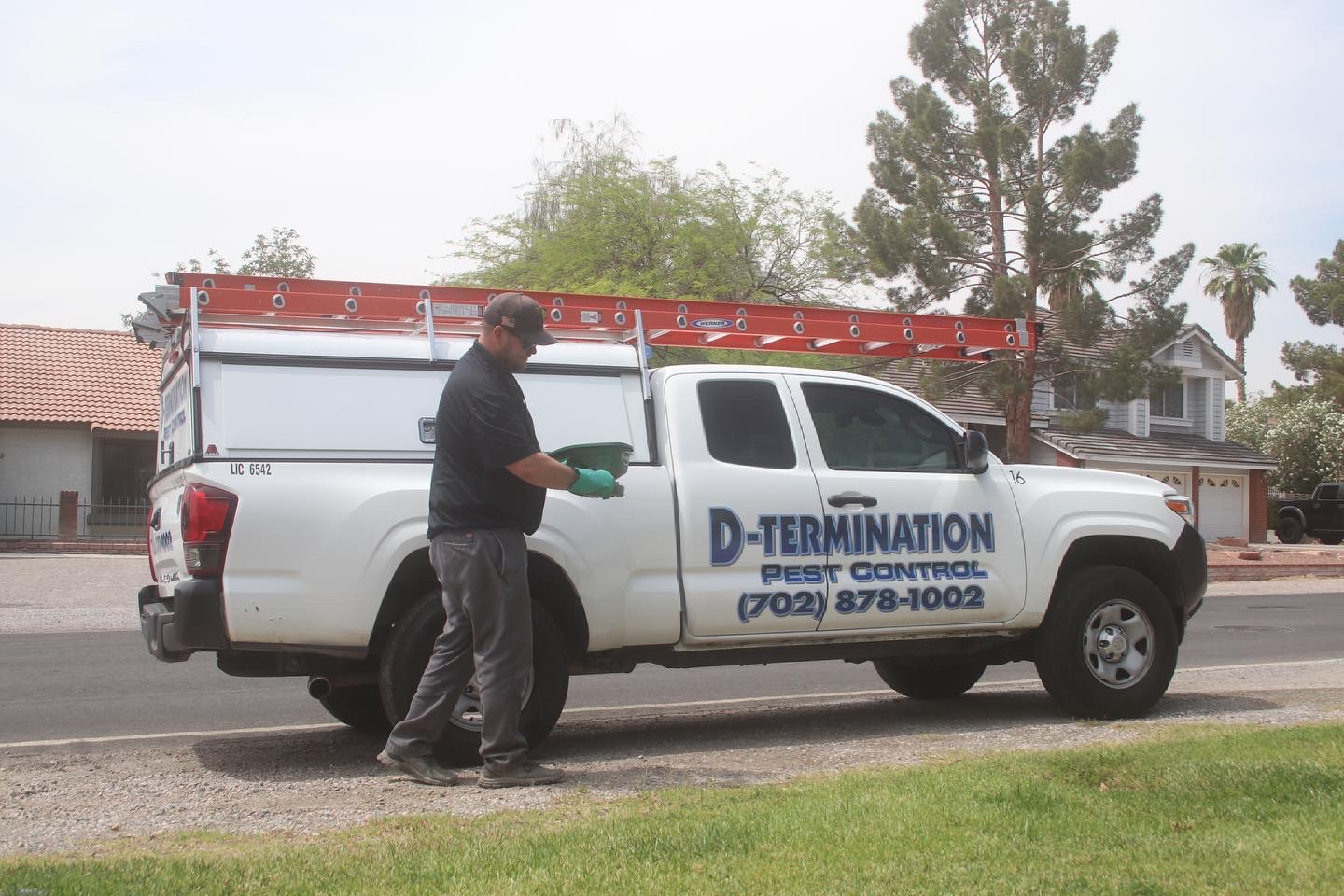Scorpion Prevention and Control
The Importance of Scorpion Prevention: Shielding Your Home from Stingy Intruders
Imagine peacefully drifting off to sleep when suddenly you feel a sharp, painful scorpion sting. Startled and in discomfort, you open your eyes only to find a scorpion lurking beside your bed. Scorpion stings can be excruciatingly painful and may require medical attention in severe cases.
This is why understanding scorpion’s live and the importance of scorpion prevention is crucial for maintaining a safe and peaceful environment within your home. Scorpions are fascinating creatures that evoke both fear and curiosity due to their unique appearance.
Found predominantly in arid regions, such as the southwestern United States, these arachnids have adapted well to survive harsh desert conditions. With their distinct segmented bodies, pincers, and long tails ending with a venomous stinger, scorpions have evolved efficient predatory techniques to capture small insects and other bugs that cross their path.
Explore Our Expert Scorpion Control Services! Discover how our professional scorpion control and treatment services can effectively tackle your scorpion infestation. Click to learn more about our professional scorpion control and treatment services!
An Overview of Scorpions: Understanding Their Habits and Habitats
To effectively implement scorpion prevention measures, it’s essential to familiarize yourself with these arachnids’ habits and habitats. Most scorpions prefer warm climates with ample hiding spots, making them particularly common in arid regions like deserts or dry grasslands.
They seek refuge under rocks or logs during the day while venturing out at night to hunt for prey. Scorpions feed on insects such as crickets, beetles, spiders, and other pests commonly found in their environment.
These resilient creatures are capable of surviving without any food sources for months when necessary but will seize any opportunity that presents itself. Understanding their behavior helps us identify potential problem areas around our homes where scorpions may seek shelter or gain access indoors.
Leaf litter, woodpiles, dense vegetation near the foundation, or even cracks in walls, floors, and window frames can become attractive hiding spots or access points for scorpions. To ensure effective scorpion control, it is crucial to adopt preventive measures that discourage their presence and minimize the chances of unwanted encounters.
By creating an environment that deters scorpions from entering your home, you can safeguard yourself and your loved ones from potentially painful stings. So, let’s explore various preventive methods homeowners can implement to keep these stingy intruders at bay.
Effective Methods for Scorpion Removal
When facing a scorpion infestation, knowing how to get rid of scorpions is essential. Our comprehensive guide provides you with proven strategies and techniques to eliminate these arachnids from your home. Learn about professional pest control options, natural remedies, and preventive measures to keep scorpions at bay.
Preventive Measures for Scorpion Control
Prevention is key when it comes to scorpions. Discover effective strategies on how to keep scorpions away and create a scorpion-free environment. Our article provides insights into sealing entry points, removing attractive habitats, and implementing scorpion deterrents. By following our tips, you can minimize the risk of scorpion encounters and protect your home.
Ensure a Restful Sleep with Scorpion Prevention
Worried about scorpions invading your bed? Learn how to prevent scorpions from getting in your bed with our helpful guide. Discover practical measures to safeguard your sleeping area, including using bed bug-proof encasements, keeping bedding off the floor, and conducting regular inspections.
Protect Your Home from Scorpion Intrusions
Preventing scorpions from entering your house is crucial to maintain a safe and comfortable living environment. Our guide on how to keep scorpions out of your house offers practical tips and measures to fortify your home against scorpion intrusions. Learn about sealing cracks, using weatherstripping, and implementing landscaping strategies to create a scorpion-resistant barrier.
Effective Approaches for Scorpion Management
Managing scorpion populations requires a comprehensive approach. Our article on scorpion control methods provides an overview of effective techniques to control and reduce scorpion infestations. Learn about chemical control, habitat modification, and integrated pest management strategies. By implementing these methods, you can effectively combat scorpions and maintain a scorpion-free environment.
Proactive Measures for Scorpion Avoidance
Prevention is key when it comes to scorpions. Our article on scorpion prevention tips offers valuable insights into proactive measures you can take to avoid scorpion encounters. Learn about landscaping practices, home maintenance, and lifestyle adjustments that can significantly reduce the likelihood of scorpions entering your space.
Identifying Scorpion Infestations
Recognizing common signs of scorpion presence
Unveiling the Elusive Stingers: How to Spot Scorpions in Your Territory
Scorpions may be masters of stealth, but they leave behind subtle hints that betray their presence. One telltale sign is the discovery of shed exoskeletons, or molts. As scorpions grow, they shed their old exoskeletons and emerge larger and stronger.
Finding these translucent shells in your home or outdoor spaces is a clear indicator that scorpions have been lurking nearby. Another clue is the presence of tiny droppings known as scat.
These pellet-like droppings resemble miniature black seeds and can be found near hiding spots such as corners, crevices, or under furniture. Spotting scat can confirm that your property has become an enticing food source or sanctuary for these arachnids.
Keep a keen eye out for live scorpions themselves! These nocturnal creatures tend to shy away from daylight and are most active during the night.
Grab a black light flashlight (also known as an ultraviolet light) and embark on a thrilling hunt after sunset. Their exoskeletons fluoresce under ultraviolet light, making them easier to spot against dark backgrounds.
Conducting a thorough inspection of indoor and outdoor areas
A Detective’s Guide: Uncovering Scorpion Hideouts through Methodical Examination
To ensure effective scorpion control, it is crucial to conduct a meticulous investigation both indoors and outdoors. Let’s start indoors first.
Begin by inspecting all entry points leading into your home—doors, windows, vents—for any gaps or cracks that could serve as gateways for these unwelcome guests. Seal off any openings using caulk or weather stripping to deny access to scorpions seeking shelter.
Next, move on to decluttering. Scorpions are notorious for hiding in dark, undisturbed areas.
Clear away piles of clutter, such as unused boxes or clothes stacked in storage areas, as they provide perfect hiding spots for scorpions and other bugs. Pay special attention to attics, basements, and garages.
Now let’s venture outdoors. Examine the perimeter of your property, paying close attention to cracks in walls or foundations that may serve as secret passages for scorpions seeking refuge indoors.
Remove any debris or woodpiles near the house that could become cozy scorpion hideouts. Inspect your yard and garden for potential scorpion hotspots.
Check under rocks, logs, palm tree bark or any objects resting directly on the ground that could create a perfect haven for scorpions during daylight hours. By following these detailed inspection tips both indoors and outdoors with a keen eye and thick gloves (for protection), you’ll get one step closer to identifying any ongoing infestations and taking swift action to control them effectively.
The Power of Aromatic Plants: Natural Scorpion Repellents
The Scented Guardians: Lavender, Rosemary, and Lemongrass

When it comes to deterring and killing scorpions naturally, aromatic plants are your allies. These delightful additions to your garden not only enhance the visual appeal but also emit scents that scorpions find repulsive. Lavender, with its calming fragrance and vibrant purple flowers, is known for its ability to keep scorpions at bay.
Rosemary, a popular culinary herb with needle-like leaves and a distinct aroma, can also work wonders in preventing these eight-legged intruders from finding their way into your home. And let’s not forget about lemongrass — its fresh citrusy scent can serve as an excellent deterrent against scorpions.
DIY Essential Oil Sprays: The Secret Weapon for Effective Repellency

Creating your own essential oil sprays is a cost-effective and efficient way to repel scorpions. Start by combining a few drops of lavender oil with water in a spray bottle and shake well. This simple yet powerful mixture can be used around doorways, windowsills, baseboards, and other potential entry points to keep scorpions at bay.
For an even more potent repellent spray, consider mixing rosemary or lemongrass oil with water following the same method. These essential oils contain strong chemicals that are highly effective in deterring scorpions from infiltrating your living spaces.
Application Tips for Maximum Effectiveness
To get the most out of these DIY sprays, make sure to apply them strategically. Concentrate on areas where scorpions are most likely to enter or hide—cracks in walls or floors, gaps around windows or doors—spraying thoroughly but sparingly. It’s important to note that while essential oils can be a powerful tool in your scorpion prevention arsenal, their efficacy may vary.
For long-lasting protection, it is advisable to reapply the sprays every few weeks or after heavy rain to maintain the deterrent effect. Remember, prevention is key when it comes to scorpion control.
By utilizing aromatic plants and creating DIY essential oil sprays, you can actively discourage these unwanted guests from ever stepping foot into your sanctuary. So go ahead, sprinkle some lavender and set up a rosemary barrier — your home will be a fortress against scorpions in no time!
Removing Attractive Conditions for Scorpions
Eliminating Clutter and Hiding Spots in and around the House

Unleash Your Inner Tidying Guru Scorpions, those peculiar arachnids with their menacing pincers and striking tails, are not the kind of houseguests anyone wants.
To keep these unwelcome intruders at bay, it’s crucial to eliminate clutter and hiding spots that offer scorpions cozy refuge within your home. Start by decluttering shelves, closets, and any areas that tend to accumulate random knick-knacks or piles of clothing.
As you organize, be vigilant for any signs of scorpion presence—those little buggers love to hide in dark corners! Moreover, pay special attention to damp areas such as basements or leaky pipes since scorpions thrive in humid environments.
It’s wise to tidy up these spaces regularly, ensuring dryness and reducing potential hiding places for these nocturnal hunters. By keeping your living space clean and free from clutter, you deprive scorpions of prime real estate while simultaneously creating a more serene environment for yourself.
Clearing Debris, Woodpiles, and Dense Vegetation from the Yard

Reclaim Your Outdoor Oasis Your yard should be an inviting place where you can relax without worrying about unexpected encounters with scorpions—or any other pests lurking nearby. One effective step towards achieving this is by clearing away debris like fallen leaves or decaying woodpiles that can serve as luxurious hideouts for these eight-legged creatures.
Pay particular attention to areas near fences or walls where debris tends to accumulate unnoticed. Additionally, trimming tree branches away from your home will deter scorpions from using them as bridges into your sanctuary.
Moreover, if you live in an area blessed with palm trees, regularly remove the dead fronds and inspect the trunk for any scaly intruders. Taking these measures will not only diminish potential hiding places but also enhance the overall aesthetics of your outdoor space.
Sealing Cracks in Walls, Floors, and Foundations to Limit Entry Points
Fortifying Your Scorpion Defense System Scorpions possess a remarkable ability to squeeze through tiny openings like contortionists at a circus. To prevent them from slipping into your humble abode unnoticed, it is essential to seal any cracks or gaps in walls, floors, and foundations.
Begin by inspecting the exterior of your house for visible vulnerabilities—look for even the slightest crevices where scorpions could make their grand entrance. To effectively seal these entry points, use caulk or weatherstripping to close off gaps around windows, doors, and utility penetrations.
Pay special attention to areas where pipes or cables enter your home as they often provide ideal gateways for unwanted guests. Additionally, consider installing door sweeps on external doors to create an extra barrier against scorpions (and other pests) seeking refuge indoors.
By removing clutter, tidying up outdoor spaces, and fortifying your home against potential entry points, you are taking substantial steps towards creating an inhospitable environment for scorpions. Remember that prevention is always better than expensive pest control treatments or dealing with painful scorpion stings later on!
Effective Indoor Scorpion Control Methods
Applying residual insecticides in key areas
One of the most effective methods for indoor scorpion control is the application of residual insecticides. These powerful chemicals contain active ingredients that can eliminate scorpions and other pests on contact, as well as provide lasting protection against future infestations.
When using these products, it is crucial to target key areas where scorpions are likely to hide and enter your home. Start by focusing on the baseboards, which serve as common entry points for scorpions.
Apply the insecticide along the edges of the floor where the baseboards meet, creating a barrier that repels and kills any scorpions found attempting to crawl inside. Additionally, treat doorways and window frames, as these are often overlooked access points for these sneaky arachnids.
Using insecticide dusts in wall voids for long-lasting protection
To further fortify your indoor defenses against scorpion intrusions, consider utilizing insecticide dusts in wall voids. These finely powdered substances can be applied within wall cavities through small openings or drilled holes, ensuring long-lasting protection against scorpions and other insects seeking shelter inside your home. The dust particles adhere to the surfaces within wall voids, creating a lethal environment for any scorpion that ventures into these spaces.
As they crawl across treated surfaces or come into contact with the dust residue left behind by their prey or other bugs, they become exposed to toxic chemicals that effectively eliminate them. This method provides a concealed yet powerful means of combating scorpion populations while minimizing risks to humans and pets.
By applying residual insecticides in key areas such as baseboards, doorways, window sills, and utilizing insecticide dusts within wall voids, you establish formidable barriers against unwanted scorpion encounters inside your home. Remember to always follow the manufacturer’s instructions and consider consulting a pest control professional for guidance on selecting the most appropriate products for your specific situation.
Let’s now turn our attention to effective strategies for keeping scorpions at bay outdoors. (Note: This section does not promote or endorse the use of pesticides; it is solely informative about potential methods.)
Outdoor Scorpion Control Strategies
Modifying Outdoor Lighting to Reduce Attraction
Shedding Light on Scorpion Repellent Illumination When it comes to scorpion prevention, one often overlooked aspect is outdoor lighting.
Believe it or not, the type and color of lights you use can make a significant difference in deterring these arachnids from infesting your space. Since scorpions are nocturnal creatures, they are naturally drawn to sources of light.
By modifying your outdoor lighting, you can capture scorpions and can discourage their unwanted presence. To reduce scorpion attraction, consider swapping out your regular white or mercury vapor bulbs with yellow or sodium vapor lights.
These types of lights emit a less appealing hue to scorpions while still providing sufficient illumination for you and your guests. Yellow and sodium vapor bulbs have proven to be effective in minimizing scorpion activity around homes and outdoor areas.
Installing Motion Sensor Lights to Deter Scorpions
Motion-Activated Defense Against Scorpions Motion sensor lights are another fantastic addition to your arsenal of scorpion control strategies.
These smart devices detect any movement within their range, instantly activating the light source. By installing motion sensor lights around the perimeter of your house and in dark corners of your yard, you create an environment that is inhospitable for lurking scorpions.
When a scorpion approaches an area illuminated by motion sensor lights, its cover is blown. The sudden burst of light disrupts their hunting pattern and exposes their presence, making them more vulnerable to predators like birds or even humans armed with thick gloves for protection.
Additionally, these lights also serve as a deterrent for other insects that would typically attract scorpions as prey. By incorporating these preventative measures into your outdoor lighting system, you can significantly reduce the chances of encountering these eight-legged creatures on your property.
Remember that scorpions tend to prefer dark, undisturbed hiding places, so keeping your outdoor areas well-lit is an effective strategy for keeping them at bay. Remember: “No scorpion shall pass!”
Professional Pest Control Services for Severe Infestations

Knowing when it’s time to call in the experts
When faced with a severe scorpion infestation, it’s crucial to recognize the limits of your own abilities and know when it’s time to seek professional help. While DIY methods can be effective for minor cases, more robust interventions may require the expertise of pest control professionals.
If you find scorpions frequently lurking in your living spaces, especially in bedrooms or bathrooms, or if you’ve had multiple encounters with scorpion stings, it’s advisable to consult a reputable pest control service. These experts have extensive knowledge of scorpion behavior and possess specialized equipment and products that are not available to the general public.
Understanding the limitations of DIY methods
While there are various DIY methods that can help prevent scorpions from entering your home, it’s important to understand their limitations. Home remedies and natural deterrents can offer temporary relief but may not address underlying infestation issues effectively.
Additionally, many DIY approaches lack residual effectiveness that can provide long-term control. For severe infestations or persistent problems, relying solely on DIY solutions may prove inadequate and potentially lead to further frustration.
Selecting reputable pest control
When selecting a pest control service for scorpion eradication, it is essential to choose a reputable provider with proven experience in scorpion control. Look for companies that have extensive knowledge about local species and their habits, as well as those that utilize environmentally friendly techniques whenever possible.
It’s also wise to seek recommendations from friends or family who have dealt successfully with similar issues in the past. Read online reviews and compare different services’ pricing structures and guarantees before making your decision.
Conclusion
Scorpions might be intimidating creatures with their segmented tails and venomous stingers; however, with proper knowledge and prevention measures, you can keep these common household pests at bay. While DIY methods have their place in preventing scorpion infestations, it is crucial to recognize their limitations and seek professional assistance for severe or persistent problems. By working with reputable pest control services equipped with the right tools and expertise, you can rid your home of scorpions and find solace in a scorpion-free environment.
Remember, a little proactive effort goes a long way in ensuring the safety and comfort of your home. So don’t let those scorpions dampen your spirits; take charge and create a pest-free sanctuary!
Frequently Asked Questions:
To keep scorpions away, you can use measures like sealing entry points, reducing moisture, and removing hiding spots.
Getting rid of and preventing scorpions involves techniques such as removing clutter, sealing cracks, using insecticides, and seeking professional assistance if needed.
Scorpions have a strong aversion to scents like citrus, lavender, and cedar.
Scorpions are attracted to houses that provide moisture, darkness, and potential hiding spots.
If this article caught your attention, you may also derive value from these related compositions:
The Fascinating World of Scorpions: Behavior, Anatomy, and Classification







